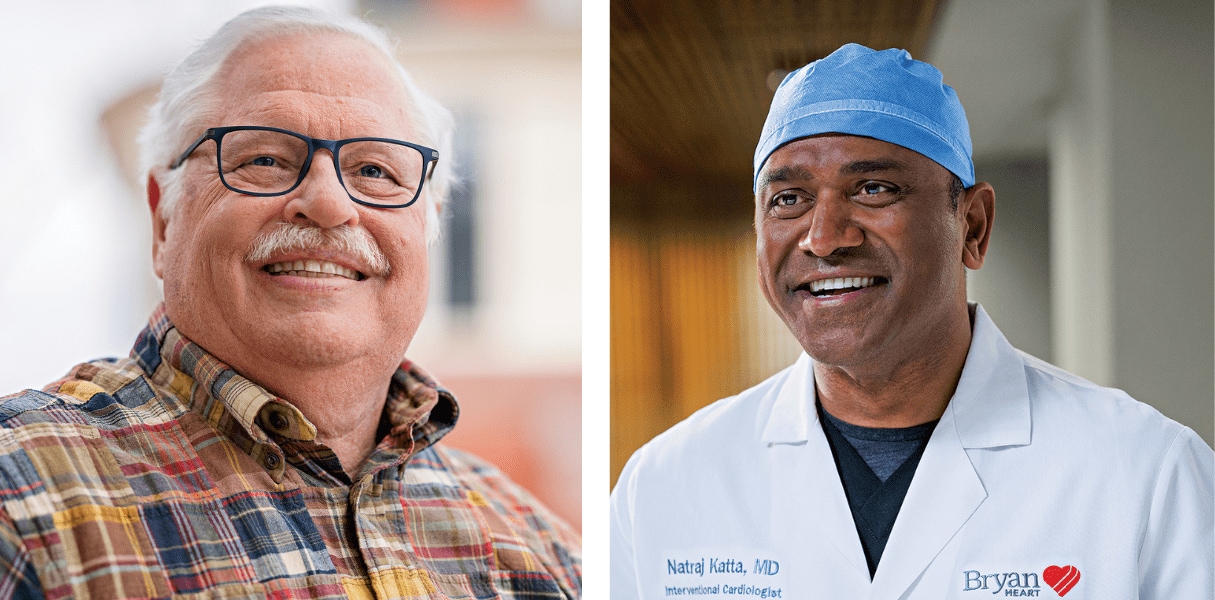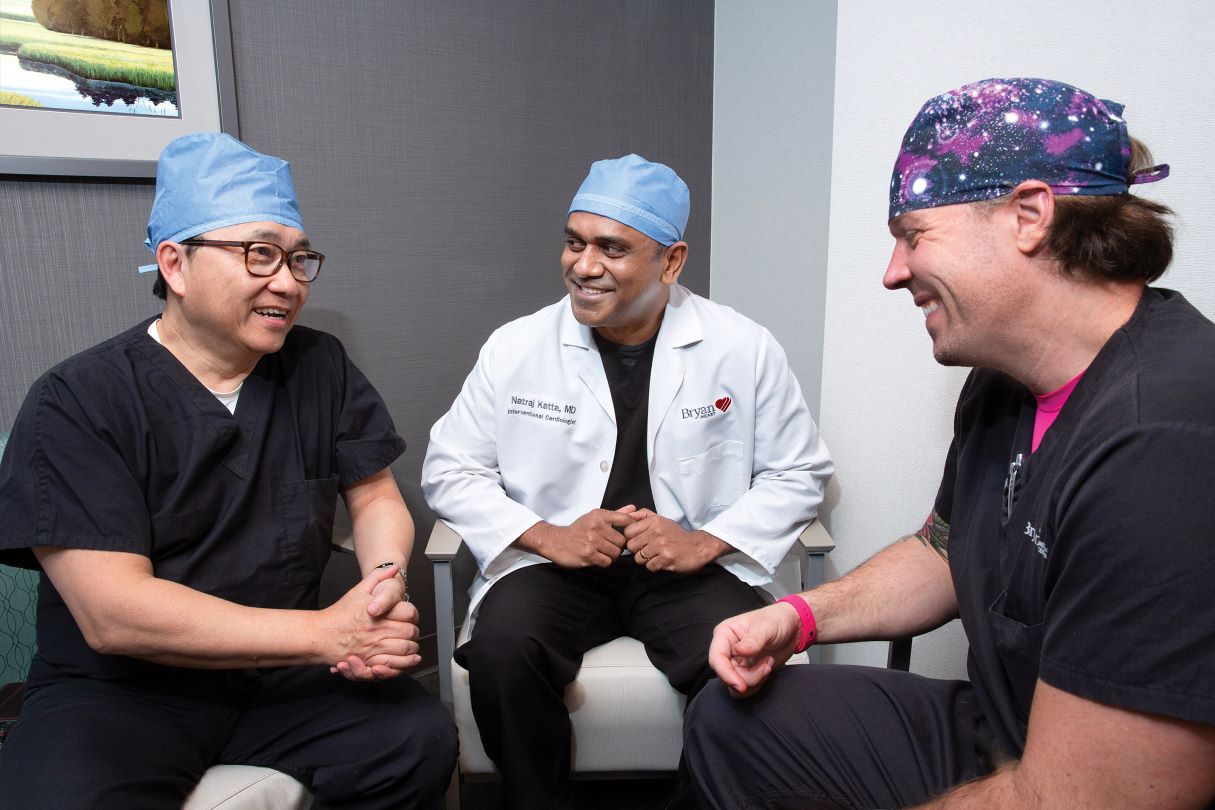Brachytherapy Option Helps Fred Avoid Heart Bypass Surgery
 Retired Pastor Fred Snyder benefited from brachytherapy as recommended by his heart doctor, Natraj Katta, MD.
Retired Pastor Fred Snyder benefited from brachytherapy as recommended by his heart doctor, Natraj Katta, MD.
It was Fall of 2022, and Fred Snyder, 71, of Lincoln, was tired of thinking about heart surgery.
Fred, who retired recently after many years as pastor of Lincoln’s historic Saint Paul United Methodist Church, was contemplating yet another heart procedure to delay heart bypass surgery.
“Over the past couple of decades, my doctors placed several sets of stents, which are tiny mesh tubes, into the vessels of my heart to keep it beating well, because those vessels had gotten clogged,” Fred says. “And that worked great — my symptoms got much better, and I soon had my energy back.”
But now, the stents themselves had begun to clog, and Fred’s symptoms — periodic chest pain, fatigue, and shortness of breath — gradually returned. This time, things had taken a new and concerning turn — interventional cardiologist Natraj Katta, MD, of Bryan Heart told Fred there were no more vessels in his heart where new stents could be placed.
So, with his best previous option no longer available, Fred sat down with Dr. Katta to consider heart bypass surgery — an operation that takes up to six hours and requires a hospital stay and many weeks of recovery time.
There was however, Dr. Katta explained, a procedure called intravascular brachytherapy that had proved successful at extending the useful life of stents that become clogged. The procedure, which is performed by a cardiologist and radiation oncologist working together, is now provided by the physicians at Bryan Heart in partnership with radiation oncologist Joseph Kam Chiu, MD, of Cancer Partners of Nebraska.
It’s a stroke of good fortune that Dr. Chiu is living here in Lincoln. He was part of the original team of physicians who researched intravascular brachytherapy at Baylor College of Medicine in Houston in the early 1990s, and has provided the procedure to over 1,000 patients, making him one of the most experienced physicians in the country.
“Our first concept for coronary brachytherapy came to my colleagues and me as a bolt of inspiration while we were having coffee,” recalls Dr. Chiu. “We conducted basic scientific research, animal testing and human trial, and it was approved by the U.S. Food and Drug Administration in late 2000.
Intravascular brachytherapy went on to be widely used, and has been shown in medical studies to reduce or delay further procedures in 90 percent of patients.
Dr. Chiu explains, “Using a surgical catheter placed into the circulation through a vein near the patient’s hip, we place an extremely tiny source of radiation — about the size of a grain of rice — for a specific number of minutes within the heart stent after it’s opened by angioplasty. This short radiation exposure to the inside of the stent modifies scar tissue formation within the stent, which is the major cause of stent blockage.
“Intravascular brachytherapy was used widely in the United States until a new generation of stents that contain medications arrived on the scene. Brachytherapy remains an essential option, however, for patients like Fred who can receive no more stents.”
Although improvement after brachytherapy is more gradual than that experienced by many patients after stent placement, Fred was relieved with the results and to be able to delay heart bypass surgery. “Three months after the procedure,” he says, “my chest pain is gone and the shortness of breath and fatigue are steadily improving."
He adds, “Heart bypass is always an option for me. In the meantime, the brachytherapy intervention helped me get back to feeling better without a hospital stay and the long rehabilitation process you have after heart bypass. I see that as an undeniable advantage.”
Dr. Katta agrees, noting, “My colleagues and I are very pleased to be the first to offer intravascular brachytherapy here in Nebraska. It’s a good option for patients who can’t have new stents placed, and it will help a lot of people delay heart bypass surgery.”
 Brachytherapy pioneer Dr. Joseph Kam Chiu discusses the procedure with interventional cardiologists Dr. Natraj Katta and Dr. Brock Cookman of Bryan Heart.
Brachytherapy pioneer Dr. Joseph Kam Chiu discusses the procedure with interventional cardiologists Dr. Natraj Katta and Dr. Brock Cookman of Bryan Heart.
To subscribe and read more Journeys stories, click here.
To learn how you can support the work of Bryan Health, please contact the Bryan Foundation staff by calling 402-481-8605.

